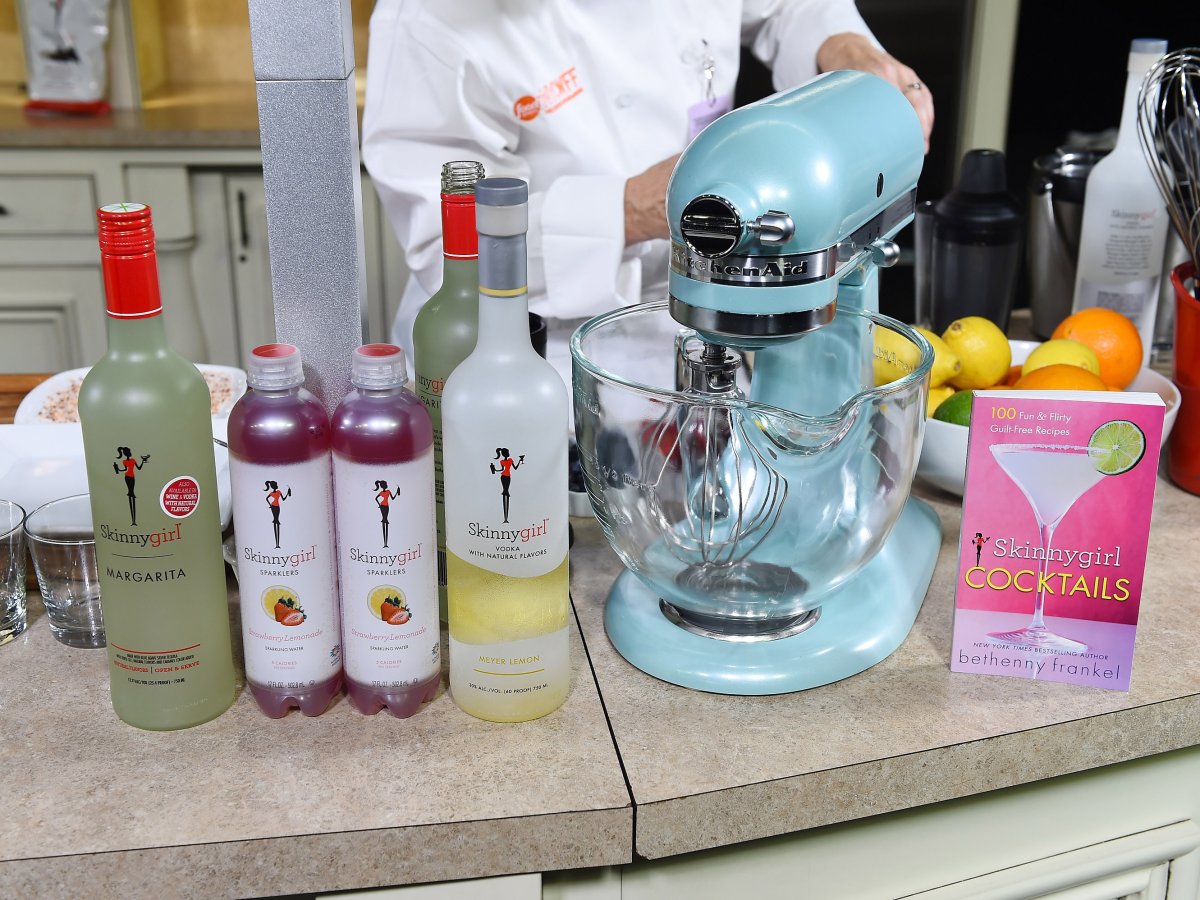It’s no secret that alcohol harbours a load of calories that deliver little to no nutritional value (often called “empty calories“), yet many are reluctant to cut it out of their diet. As a result, the “skinny” alcohol category has grown in recent years to include all manner of reduced-calorie drinks from margaritas and vodka to wine and champagne.

But in some cases, consumption of these beverages can do more harm than good. The perception that these drinks are healthier can lead to over-consumption and while they are typically lower in sugar than regular alcohol (which is how they save you calories), some use sugar substitutes like Stevia, which comes with repercussions including lowering blood pressure and interfering with certain medications. Then there is the question of just how many calories they’re actually saving you in the long run.
READ MORE: Cheers! British scientist is testing ‘hangover-free alcohol’
“In some cases, they’re just not worth it,” says Abby Langer, owner of Abby Langer Nutrition in Toronto. “The caloric savings can be as insignificant as 15 calories. Wouldn’t you rather have real wine and get over it?”
For reference, a five-ounce glass of regular red wine has roughly 120 calories and white wine clocks in at 110, while a five-ounce glass of the popular Skinnygirl brand of wine is 100 calories. The savings aren’t that big a deal, as Langer notes.
The same goes for the Thomson & Scott Skinny Prosecco and Champagne collection that has started to make a splash in the UK. A glass of traditional Prosecco is 80 calories (which makes it a favourite of drinkers looking to watch their waistline), whereas the Thomson & Scott brand is 67 calories. And an average bottle of Prosecco contains 12 to 15 grams of sugar per litre while the skinny version boasts only seven.
WATCH:
Victoria Moore, a wine expert, explained skinny Prosecco’s negligible caloric savings to The Telegraph. “Brut champagne must by law contain no more than 12 grams of sugar per litre – same for Brut Prosecco – and most of the big champagne brands contain less than that,” she said. “You’d have to drink a whole litre of the ‘skinny Prosecco’ to save 5 grams of sugar against a normal Brut Prosecco.”
What’s more, some research – like this 2010 study published in JAMA – suggests consuming normal, full-calorie alcohol in moderation might not lead to a scary amount of weight gain. Which means, as Langer notes, those who drink skinny beverages under the guise that they’ll prevent love handles may be deceiving themselves.
READ MORE: ‘Drunkorexia’ on the rise at university campuses, including Canadian schools
“You have to be mindful of the serving size of your skinny drink,” Langer says. “It’s easy to allow yourself to drink more of it because you perceive it as healthier, but you can actually end up drinking more calories. The calorie count that’s on the bottle may not be what you’re having in your typical pour.”
Langer also points to the psychological effects these skinny drinks can have on the collective female consciousness.
“These drinks are marketed specifically to women and the implication is that women need diet products in their lives,” she says. “It’s the wrong message to send to the consumer and it’s a dangerous thing for women to train their brain to look for. Wouldn’t you just rather have a beautiful glass of wine from South Africa instead of some lesser quality skinny wine?”
To clients who come to her looking for a weight loss solution but not willing to cut out alcohol, Langer advises them to start by cutting their drinking in half with the eventual goal of getting down to one or two drinks per week. And she also doles out some plain old common sense.
“If you want a drink have a cocktail made with a low-calorie mixer, a glass of wine or a glass of Prosecco,” she says. “Don’t fall prey to the marketing ploy of a skinny drink.”




_tnb_2.jpg?w=1200&quality=70&strip=all)





Comments